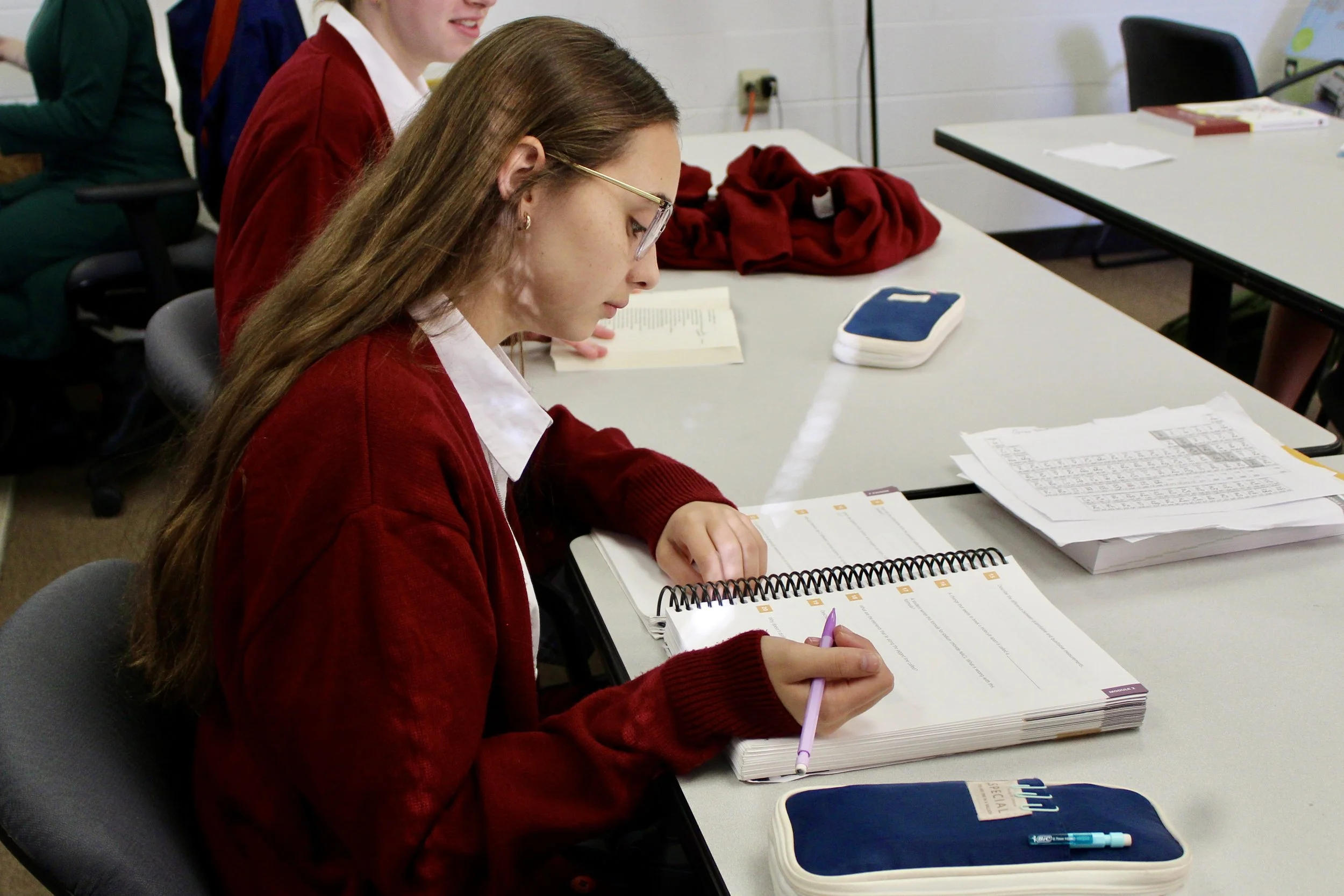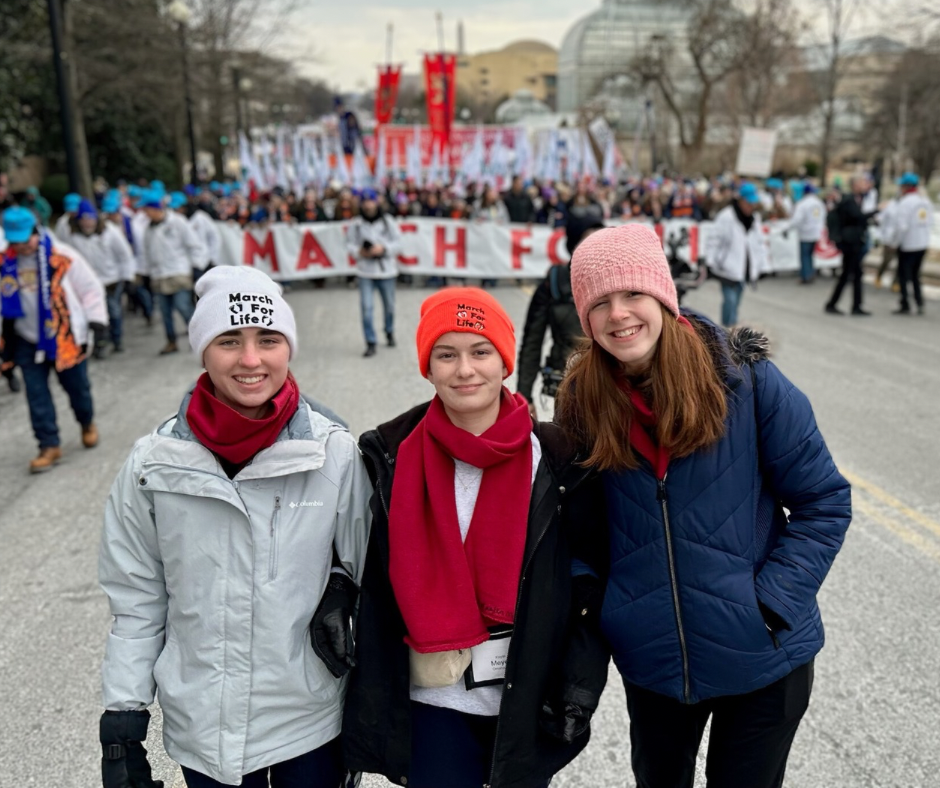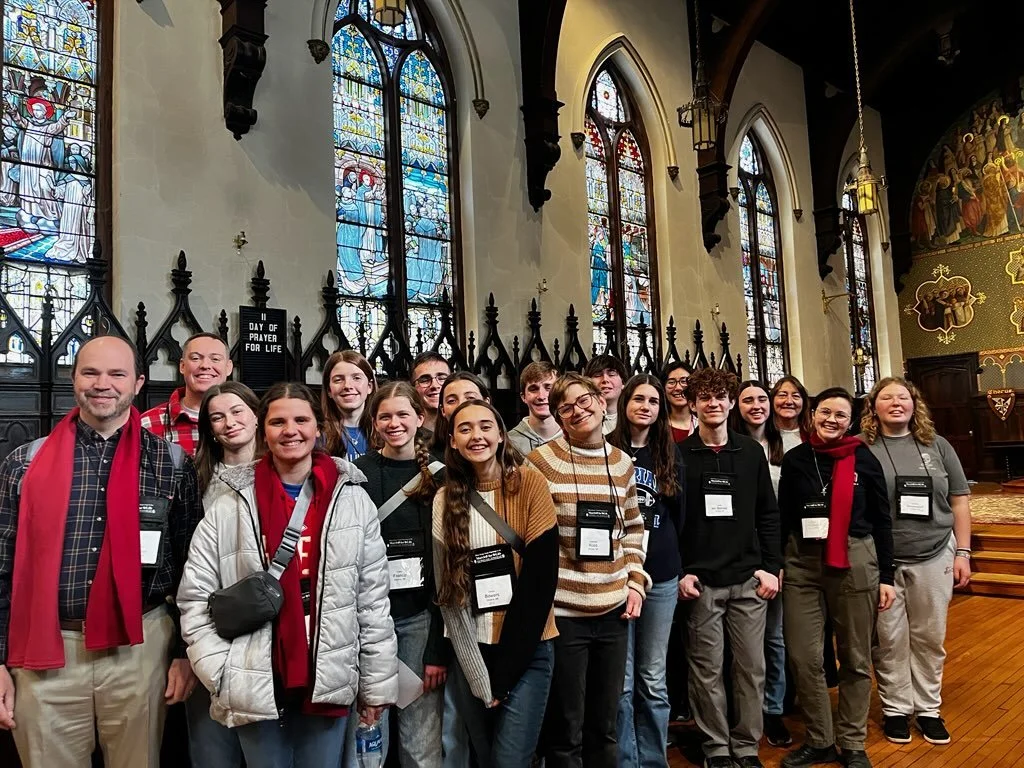
High School - The Rhetoric Stage
In Brief
Through their years at JPII Academy, our students are steeped in the classical tradition of the good and great books and inspired by the great thinkers and writers of western civilization. Along the way, students learn to:
Discover the world and its laws through immersion in nature and lab-based science courses
Memorize and recite poetry and the most important words that shaped human history
Speak with confidence and charity through Socratic seminars and public debates
Learn Logic and Latin, the building blocks of thought and language
Write with clarity and persuasion in their essays and creative writing
Create art in imitation of the masters
Problem solve like engineers
Dream like poets
Love like saints
As they leave our community, our students are prepared to be successful in college, in life, and in the life to come.
KEY FACTS – 2025-26
7:1 Faculty / Student Ratio
1/3 of students receive financial aid
Average ACT Score: 25
10 point standard grading scale
4.0 standard GPA scale
Grades on trimester system
The Curriculum
-
Students study the natural world through the lens of the scientific method and mathematics. They gain a high level of both mathematical fluency and conceptual understanding through regular practice and real-world applications. Science classes emphasize a lab-based approach that integrates the inductive (follow the data, develop a theory) and deductive (apply prior knowledge and given definitions). Faculty bring their own practical experience from engineering and applied science to project-based learning experiences. Students also study the discoveries of historical scientists like Albert the Great, Copernicus, Galileo, Blaise Pascal, Isaac Newton, Louis Pasteur, Fr. George Lemaître, George Mendel, and more.
-
Drawing from Natural Law, Sacred Scripture, and the Church’s Magisterium, students navigate through the most challenging theological and philosophical questions asked by man. Who is God? How is He revealed? Why does He hide? Is there objective truth? An absolute right and wrong? And how can we know it? Why is there suffering? What does it mean to be human? Students are invited to know and live their faith and to give “a ready defense for the hope that lies within them” (1 Peter 3:15).
Original texts are integrated from Sacred Scripture, the Catechism of the Catholic Church, the Writings of the Church Fathers, alongside philosophers like Plato, Aristotle, Aquinas, Boethius, Anselm, Ockham, Descartes, Nietzsche, Frankl, and Sartre.
-
Following a chronological approach, students study the history, literature, and cultures of the Ancient, Medieval, Modern periods, concluding with the unique American experience. Students thus receive a systematic and comprehensive understanding of history, while reading the most influential works of western civilization: The Iliad, The Odyssey, Julius Ceasar, Sir Gawain, Beowulf, The Divine Comedy, Macbeth, Utopia, Tale of Two Cities, Paradise Lost, Hamlet, The Brothers Karamazov, King Lear, and more. Unusual for most high schools, most of these books are not excerpted but are read in their entirety.
-
Our approach offers a dialogue between the immersion/spoken method, and a rigorous grammar/translation pedagogy. The courses:
Beginning Latin - Immersion/Spoken
(Polis Institute - Unus, Duo, Tres)
Intermediate Latin A & B - Grammar/Translation
(Wheelock)
Advanced Latin Readings - Sustained translation work with a major Latin text such as The Latin Vulgate (New Testament), Virgil’s Aeneid, Augustine’s Confessions, and Ovid’s Metamorphoses.
-
Students learn formal and informal logic and the nature of fallacies. They hone the skill of crafting arguments from strong premises to persuasive conclusions. Through poetry recitations, extemporaneous presentations, and daily Socratic seminars, students learn and practice the art of rhetoric. Drama productions complete this training and enable students to find their own voice along the way.
-
Artists are not born great. Like all disciplines and sports, they become great through a combination of talent and sustained practice. Students find their own creative vision by knowing about and being immersed in the great masters of ancient Greece and the Medieval, Renaissance, Baroque, and Impressionist periods, among others.
In addition, through our accomplished choral program, our students learn to sing polyphony, traditional folk songs, rounds, and epic ballads - music that is both fun and timeless. From sacred liturgical chants to sea shanties, our students come to live and breathe what it means to be a saint, fully alive.
Ready to take the next step?
Register for an Open House or schedule your student for a Shadow Day today.






